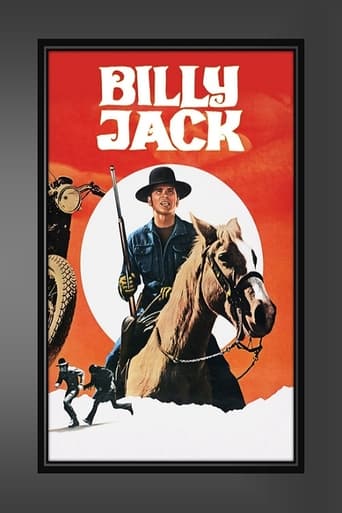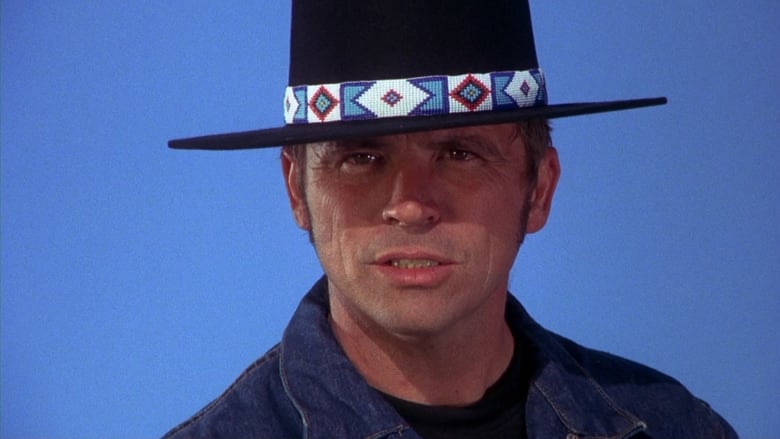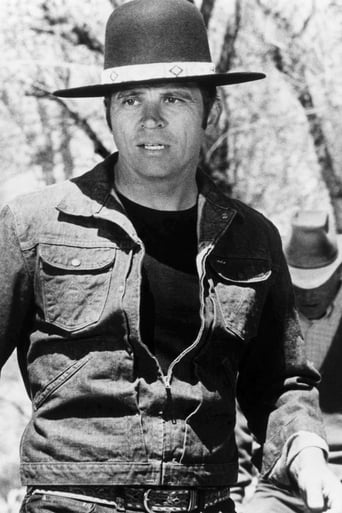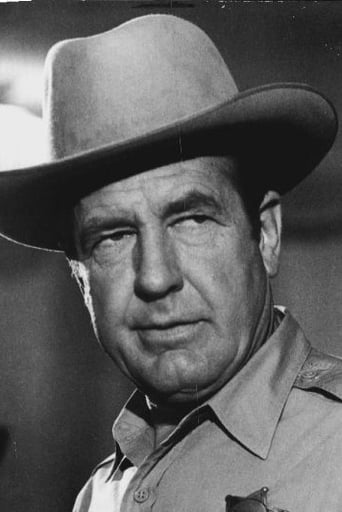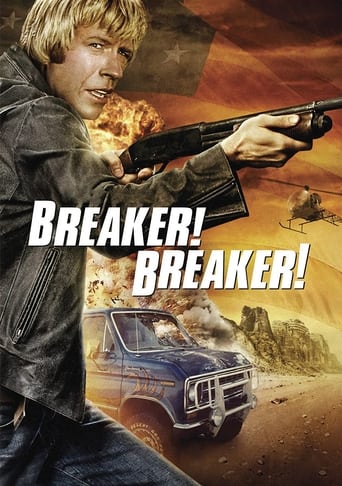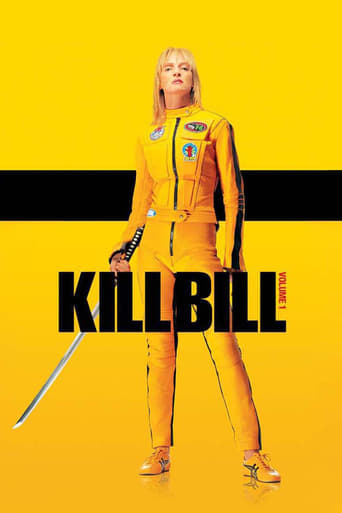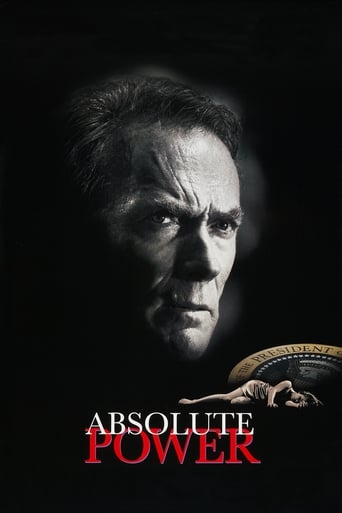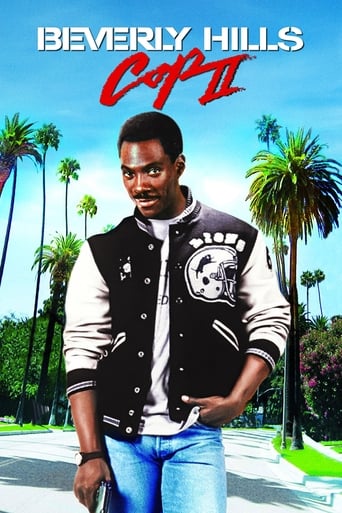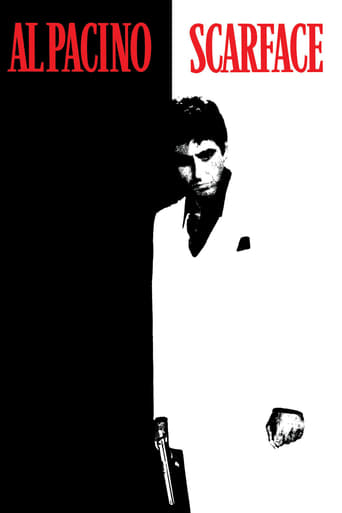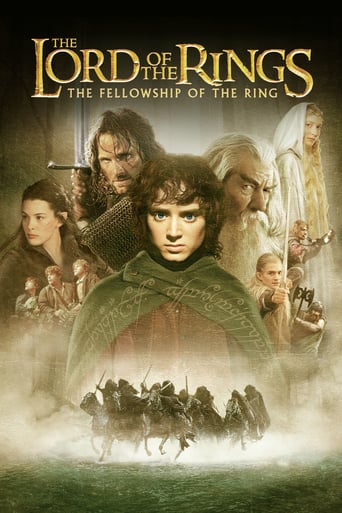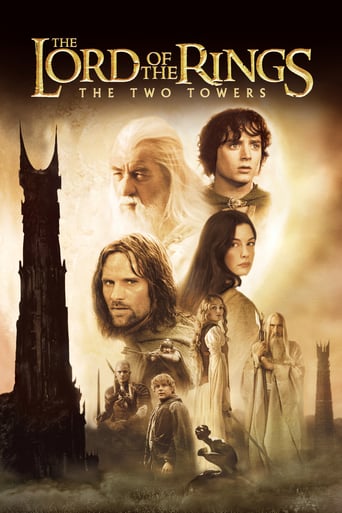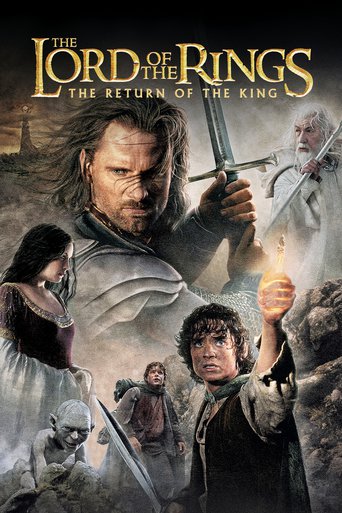Billy Jack (1971)
Ex-Green Beret hapkido expert saves wild horses from being slaughtered for dog food and helps protect a desert "freedom school" for runaways.
Watch Trailer
Cast


Similar titles
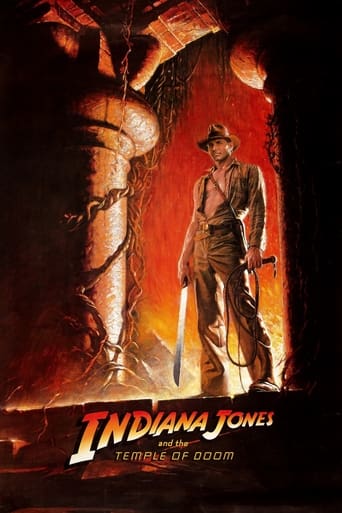
Reviews
Very very predictable, including the post credit scene !!!
Blistering performances.
The film never slows down or bores, plunging from one harrowing sequence to the next.
The acting is good, and the firecracker script has some excellent ideas.
BILLY JACK is the quintessential '70s film detailing the hippie movement and depicting their struggles against small-town narrow mindedness and bigotry in the American south. Tom Laughlin, who directs as well as stars as the eponymous hero (he's playing the character in the second of five films here, although the last remains unreleased), is in many ways an early version of Rambo in FIRST BLOOD, a highly skilled loner who just wants to be left alone. Unfortunately, as in FIRST BLOOD, the corrupt authorities have other ideas, and that's where the film comes in.I'm no fan of political polemics in films. I believe they have their place, and that place is not being thrust down your throat in a piece of entertainment. Sadly, a lot of the running time of this overlong film is spent in depicting the hippie movement in a positive light, which in essence means lots of preaching, lots of happy-clappy nonsense and plenty of amateur theatre. BILLY JACK is in reality a didactic film that aims to educate its audience rather than entertain, which is a shame, as all of the subtext stuff is rather dull. Remove all of the 'messages' and you'd have an hour-long film.Still, the thriller aspects are well-handled even if they're overshadowed by the rest of the film, and it's fun to see a hero using martial arts before Bruce Lee hit the scene in ENTER THE DRAGON. There are the standard elements of many a '70s thriller, including rape scenes, humiliation, ass-kicking, car chases and a siege that doesn't disappointment. Laughlin is excellent in the titular role and his supporting cast, especially the Native Americans, are very good too, but it's just hard to get worked up about a film so intent on spreading the message that it loses focus of what it's all about.
When TCM ran this recently what really showed the most was the shoe string budget of American International Pictures when this movie was made. The print looked terrible -much worse than when I saw it in the theater. Political Correctness people will freak out watching this because if this were remade today it would make Native Americans have something in common with Patriots - both would have deflated balls.This was a hero worship effort by the star and script writer Laughlin. The story looks a little thread bare looking back and without today's special effects comes off flat. Tom Laughlin was what this movie was centered on, may he rest in peace.The message of this movie has gotten lost somewhere in time. Sometimes the good old days belong in the good old days. This is true here. Drag Movie Funny Car Summer which was released at the same time holds up better than this semi-classic.
Talk about sending out a screwy message!This film actually seemed to suggest that a good, swift kick in the groin would bring about "peace and love". And that a gun in hand was far better than any old constitution when it came to enforcing justice.Seen today, Billy Jack's politics are, to say the least, highly questionable and its "so-called" message of peace looks downright ludicrous, considering the serious amount of violence that takes place in the story.Set in and around the town of Prescott, Arizona, actor Tom Laughlin starred, directed, and co-wrote this 1971, grass-roots hit, which by 1973 had grossed well-over $40 million. (Its budget was only $800,000)Billy Jack predates all of the Bruce Lee/Kung Fu movies and character Billy Jack's wardrobe of black t-shirt, denim jeans and jacket, and black hat with bead-work became an instant fashion trend amongst all the hippy-dippy youth of the day.Anyways, as Billy Jack's crude, little story goes -Half-breed, Cherokee, and karate expert, Billy Jack goes well out of his way to protect a hippie-themed freedom school for runaways that has recently come under fire (figuratively speaking) by the bigoted, reactionary townspeople of Prescott.Yep. Billy Jack's story really was as plain and simple as all of that.This film was actually credited with helping to raise the level of awareness regarding the discrimination of Native Americans.Billy Jack's memorable opening, title sequence, depicting the slaughter of wild mustangs, introduced the hit song "One Tin Soldier" by Coven.Lyrics excerpt - "You won't hear any trumpets blowing, Come the Judgment Day, On the bloody morning after, One tin soldier rides away."
The movie's theme song "One Tin Soldier" was covered by Coven from the original 1970 tune by Original Caste. In it, the valley people covet supposed riches of the mountain kingdom. The latter wish to share, but the valley people, wanting it all, attack and slay their neighbors. But they find no riches. One tin soldier rides away, the legend of Billy Jack.Billy Jack (Tom McLaughlin) martial arts expert and ex-Green Beret, is a "half-breed" who has authority to uphold the law on an Indian reservation in Arizona or New Mexico. Billy Jack's girl is a strong- willed woman, a pacifist, Jean Roberts (Delores Taylor, his wife in real life) who runs the Freedom School. This progressive reservation school for troubled young folks welcomes all youth regardless of ethnicity; it is a rainbow. There are three main rules: (1) no drugs, (2) everyone must pull his/her own weight, and (3) a student must create something, like a painting about his/her heritage, weaving a blanket, creating a film, etc. One may surmise that the Indian reservation and school represent the mountain people of the song.In contrast to the school is the nearby town outside the reservation. The folks who live and work there are hostile to the reservation school as they cannot relate to its unorthodox teaching methods. As they consider the kids to be outcasts, they make no attempt to hide their various prejudices. In reality the deck is stacked: all of the virtues belong to the school population with the exception of one or two oddballs. By contrast, all of the negative qualities are possessed by the narrow-minded townsfolk nearly without exception. They do not like "long-haired weirdos." Chief among the town-folk are the Posners, businessman father and purposeless son. The former, Stuart Posner (Bert Freed), is plain rotten; the latter, Bernard (David Roya), is a disdainful rich kid. At the beginning Stuart Posner thinks there is nothing wrong about illegally rounding up wild mustangs on Indian land and slaughtering them for profit. Although Bernard initially seems to stand up to his father, he later shows his vile side as he degenerates into murder, rape, and even near-pedophilia. Although Sheriff Cole (Clark Howat) is decent enough, his deputy Mike (Ken Tobey) is a snake. One may surmise that the town represents the valley people of the song.As pacifist Jean tells Billy, he needs to control his violent temper. In turn, Billy feels he needs to use violence to get justice for his people. An example relates to a group of Freedom School teens who take the school bus to town for shopping. At an ice cream store they suffer an intolerable injustice that goes beyond the owner not serving them. By the way, if a store-owner wants to make money, why does he not sell to everybody? This attitude has always seemed self-defeating. Anyway Billy Jack throws the biggest bully ("Dinosaur") through a plate glass window. Pow! The store owner merely stands by and watches. After that someone tampers with Billy's jeep. Then Billy Jack is outnumbered 12 to one in fight with some townsmen. In the course of the film, tensions will escalate until the inevitable conclusion of the struggle between the townsfolk and the school (Billy Jack). Although Tom McLaughlin is heavy-handed, his screen presence is huge. Reserved and athletic, he represents the ideal Caucasian-Indian hero: tough, unshakable, and aware of his Indian roots. He is at ease whether on horseback or motorcycle. Delores Taylor, slender and with long hair, but also sad-eyed and plain-faced, is appropriate as the school administrator. Although her acting is uneven, she is a central figure of the story in many ways. For it is she who began the school and both encourages and relates to the young people. It is she who helps Billy Jack come to his senses at the end. The independent film could have used experienced editing, especially for the school skits, and the script could have been tighter. The singing and guitar-playing are sometimes difficult to take. And it is understandable that Stan Rice, the actor who plays the Indian Martin, has no other silver screen credits. The movie running time is too long, and some of the dialogue and attitudes are outlandish. For instance, at the board meeting the young girl credits the "law and order" quote to Adolf Hitler. Thus the inferred message is that anyone who supports upholding our laws extols that dictator. Despite amateurish acting, the film does display a charm of its own. White-booted Susan Foster (Cindy/"Up Yours") is very attractive. Always beautiful are southwestern USA shots. The Paiute Wovoka friendship dance is colorful, while the Shoshone Indian snake ceremony is most unusual. The Billy Jack story line does maintain interest and the theme song is well done.By the way, note the yellow-colored Dr. Pepper poster advertisement on the ice cream store door when Billy Jack enters. It illustrates the upcoming school football schedule for 1969, the year when filming began. "Billy Jack" was released in 1971 and again in 1973. A movie costing under a million dollars to create grossed many times that number. This popular cult film even resulted in two sequels; its predecessor was "Born Losers" (1967).

